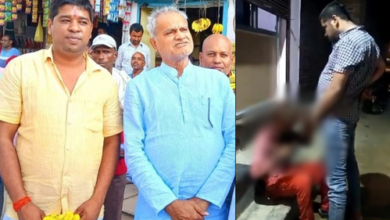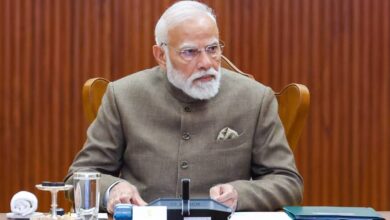
Mobilenews24x7 Bureau
How a journalist should work and under what guidelines? Without going into the nitty-gritty in the books it can be simply said that he or she enjoys an unwritten mandate to report the truth. Like an intermediary in-between the people and the system that rules.
That is, to report what he sees and realize as true. Not to report what is told to him to report by an invisible power from the top. If he or she goes by the two above sentences, now, it is being taken as a dissent or misinformation which can invite reprisals.
Anyway, if really the report is premised on wrongs those can affect the national interest or cause any personal damage then it calls for explanation and action can be taken as enshrined in the law.
And, may be the worse even. Of late there is common cry among a large section of the media that, their rights to report the truth or question the wrongs in the power corridors face the reprisals or remain chilled by a fear of reprisal.
The most recent issue over the alleged offences against the NewsClick and its guardians and reporters has stirred the conscience of the media fraternity.
What can be said that the development in NewsClick has ushered in a fear by many police actions like, raids, arrests, summons and confiscations of mobile phones and laptops of several journalists from their personal residences.
Charges against the news portal are many and principally the inflow of funds from China to damage the image of Indian dispensation and also toeing a line of bias in their reportings.
Ultimately the noted DIGIPUB News India Foundation and 17 bodies journalists in a letter to the Chief Justice of India DY Chandrachud has sought the latter’s intervention and protection for freedom of expression.
The letter was written by DIGIPUB – along with 17 other journalist bodies, including Press Club of India, National Alliance of Journalists and Mumbai Press Club – on Wednesday, 4 October.
A day before, the Delhi Police raided homes of over 30 journalists and seized their phones and laptops. After hours of questioning, the police also arrested editor-in-chief Prabir Purukayastha and human resource head Amit Chakravarty.
The letter reads
“We write this letter as a voluntary and free coalition of organisations that represent the free press and who are committed to upholding the values of freedom of speech and expression enshrined in our Constitution “.
“This letter is an earnest plea to the sentinel on the qui vive, weather-beaten as that phrase may have become—an appeal from one institution that is essential for the exercise of freedom and democracy in India, to one that is Supreme and is sworn to protect the Constitution that enshrines those freedoms “.
“We write this letter conscious of the fact that it is addressed not just to the Chief Justice of India but to an incumbent who has said, within the court and outside, that the “press has a duty to speak truth to power and present citizens with hard facts enabling them to make choices that propel democracy in the right direction” and that India’s freedoms will be safe as long as journalists can play this role “without being chilled by a threat of reprisal”.
“The fact is that today, a large section of journalists in India finds itself working under the threat of reprisal. And it is imperative that the Judiciary confronts Power with a fundamental Truth—that there is a Constitution to which we are all answerable.”
“On October 3, 2023, the Special Cell of the Delhi Police raided the homes of 46 journalists, editors, writers, and professionals seemingly connected in one way or another to the online news portal, NewsClick. The raids led to the arrest of two persons under various sections of the Unlawful Activities (Prevention) Act, and the seizure of mobile phones and computers without ensuring the integrity of their data—a basic protocol that is essential to due process. The invocation of UAPA is especially chilling. Journalism cannot be prosecuted as ‘terrorism’. Enough instances in history abound to tell us where that eventually goes.”
“During your time at the Supreme Court, you have seen how on numerous occasions, the country’s investigating agencies have been misused and weaponised against the Press. Sedition and terrorism cases have been filed against editors and reporters, and multiple, sequential and/or frivolous FIRs have been used as an instrument of harassment against journalists.”
“The purpose of addressing this letter to you is not to bypass or circumvent the process and procedure established by law. But when journalists are summoned and their devices seized in the name of investigation, there is an inherent malice in the process that must be checked”.
“Just as the police are obliged by the Constitution to state the grounds of arrest, it must equally be a precondition to questioning. In its absence, as we have seen in the NewsClick case, vague assertions about the investigation of some unspecified offence have become the grounds for questioning journalists about their coverage of, inter alia, the farmers’ movement, the government’s handling of the Covid pandemic and the protest against the Citizenship Amandment Act “.
“We do not say that journalists are above the law. We are not and do not wish to be. However, intimidation of the media affects the democratic fabric of society. And subjecting journalists to a concentrated criminal process because the government disapproves of their coverage of national and international affairs is an attempt to chill the press by threat of reprisal—the very ingredient you identified as a threat to freedom”.
“Wide powers of investigation are given to the state on the assumption of bonafides on the part of its agencies. Equally, a wide immunity against coercion must be read into the constitutional provisions of free speech, and methods must be devised against police overreach—especially given the repeated misuse of these powers. Far too much is at stake to test every case at the end of a trial which can last years”.
Journalists arrested under UAPA can end up spending months, if not years, behind bars before they are even granted bail. We already have the case of Siddique Kappan before us; he was incarcerated for two years and four months before finally securing bail. The tragic death of Father Stan Swamy in custody is a reminder of how indifferent the authorities seem to have become towards human life under the guise of combating ‘terrorism’.
“Our fear is that state actions against the media have been taken beyond measure, and should they be allowed to continue in the direction they are headed, it may be too late for corrective or remedial steps. It is, therefore, our collective view that the Higher Judiciary must now intervene to put an end to the increasingly repressive use of investigating agencies against the media”.






